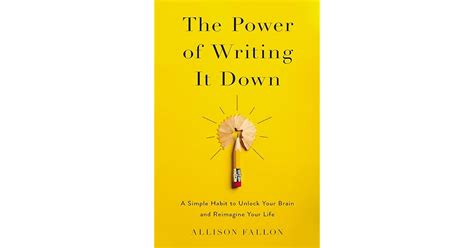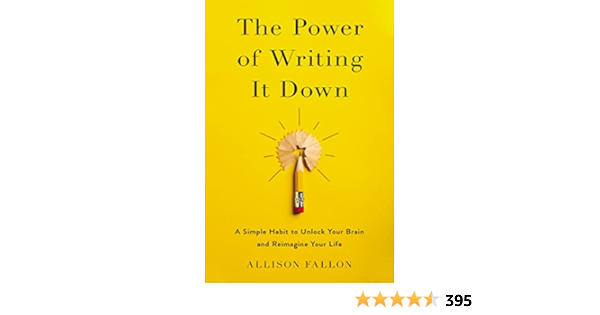In today’s fast-paced world, mental health has become a priority for many, and finding effective ways to manage stress and emotions is crucial. One powerful tool that has gained recognition for its transformative impact on mental well-being is journaling. This simple yet profound practice involves writing down thoughts, feelings, and experiences, serving as a gateway to understanding and healing. From reducing stress and anxiety to fostering personal growth, journaling offers a wide range of mental health benefits. In this article, we will explore how journaling can unlock emotional resilience, enhance self-awareness, and promote a healthier, more balanced life.
tirfblog.com will provide a detailed exploration of this topic.
1. Reduces Stress and Anxiety: Journaling provides a healthy outlet to release pent-up emotions, reducing stress and anxiety levels.
Journaling offers a valuable tool for managing stress and anxiety. It provides a safe and private space for emotional expression, allowing us to release pent-up feelings through writing. This process of emotional release helps alleviate the buildup of stress and tension. Putting our worries on paper creates a physical distance from our concerns, enabling us to gain perspective and clarity.
By externalizing emotions, individuals can lessen the intensity of negative feelings, making them easier to cope with. Furthermore, journaling fosters a reflective process, enabling individuals to recognize triggers and recurring patterns in their stress and anxiety. This deeper understanding of what shapes their mental well-being can be invaluable.
Regular journaling helps people process emotions as they arise, preventing them from accumulating and causing feelings of overwhelm. This consistent practice fosters a sense of control and calm, making journaling a powerful tool for reducing stress and anxiety. By incorporating journaling into your routine, you can cultivate a healthier and more resilient mind.

2. Improves Mood: Regular journaling can help improve mood by fostering self-awareness and emotional regulation.
Regular journaling can significantly improve mood by fostering self-awareness and emotional regulation. When individuals take the time to write about their thoughts and feelings, they become more attuned to their emotional states. This increased self-awareness allows them to recognize and understand the emotions they are experiencing, which is the first step toward managing them effectively.
Journaling provides a structured way to explore both positive and negative emotions, helping to identify underlying causes of mood swings or persistent negative feelings. By acknowledging these emotions on paper, individuals can process them in a healthier manner, reducing the likelihood of feeling overwhelmed or stuck in a negative mindset.
Moreover, the act of journaling often leads to the discovery of positive patterns or moments of gratitude that might otherwise go unnoticed. This shift in focus from negative to positive experiences can elevate mood over time. By consistently practicing journaling, individuals can create a more balanced and optimistic outlook, leading to improved emotional well-being.

3. Enhances Self-Awareness: Writing down thoughts and feelings helps individuals understand their emotions and behavior patterns better.
Journaling serves as a potent tool for increasing self-awareness, granting individuals a more profound comprehension of their emotions and behavioral patterns. By dedicating time to writing down our thoughts and feelings, we construct a tangible record of our internal experiences. This process of documenting emotions enables us to observe and analyze recurring themes, triggers, and reactions that might otherwise escape our notice.
Regularly reflecting on our journal entries reveals patterns in our behavior and emotions, shedding light on why we react in specific ways across various situations. This increased self-awareness empowers individuals to make more informed choices about how to handle challenges and navigate relationships.
Moreover, journaling unveils hidden beliefs and fears that impact our thoughts and behaviors, offering a chance to confront and transform them. Increased self-awareness empowers individuals to better manage their emotions, resulting in more mindful and fulfilling decisions. Ultimately, journaling acts as a mirror, reflecting the intricate depths of our inner being and nurturing personal development.

4. Boosts Memory and Comprehension: The process of writing enhances cognitive function, improving memory and comprehension skills.
Journaling is not only beneficial for emotional well-being but also enhances cognitive functions such as memory and comprehension. The act of writing requires individuals to organize their thoughts and articulate them clearly, which engages multiple areas of the brain. This process strengthens neural connections, improving the brain’s ability to retain and recall information.
When we write about our experiences or reflect on what we’ve learned, we reinforce those memories, making them more vivid and easier to retrieve later. This is because writing down information involves both visual and motor skills, which enhances our ability to remember details more effectively than simply thinking about them.
Moreover, journaling encourages deeper comprehension. As we explore and articulate complex thoughts or emotions, we often gain new insights and a more nuanced understanding of the subject matter. This reflective process helps to clarify ideas and solidify learning, making it easier to apply knowledge in different contexts.
By regularly engaging in journaling, individuals can sharpen their cognitive abilities, leading to improved memory retention and a better grasp of the information they encounter in daily life.
5. Strengthens Emotional Functions: Journaling helps manage emotions and fosters a deeper understanding of personal experiences.
Journaling is a powerful practice for strengthening emotional functions by helping individuals manage their emotions and gain a deeper understanding of their personal experiences. When we put our thoughts and feelings into words, we create a structured way to process emotions that might otherwise feel overwhelming or confusing. This act of writing enables us to explore our emotions in a safe and controlled environment, allowing us to understand the root causes of our feelings.
Through journaling, individuals can track their emotional responses over time, identifying patterns and triggers that influence their moods. This awareness helps in developing healthier coping strategies and emotional regulation techniques. By consistently reflecting on experiences and emotions, we become more adept at recognizing when we are being driven by intense emotions, enabling us to respond rather than react impulsively.
Furthermore, journaling fosters emotional resilience by providing a space to work through difficult feelings and challenges. It encourages introspection, helping individuals to confront and process negative emotions, leading to healing and emotional growth. Over time, this practice strengthens our ability to manage emotions effectively, promoting greater emotional stability and well-being.
Ultimately, journaling offers a path to deeper self-awareness and emotional intelligence, empowering individuals to navigate the complexities of their emotional lives with greater ease and understanding.
6. Encourages Mindfulness: The practice of journaling encourages mindfulness, helping individuals stay present and grounded.
Journaling is a valuable tool for fostering mindfulness. It encourages individuals to slow down and focus on the present moment. Our fast-paced lives often leave us feeling overwhelmed by the constant flow of thoughts, emotions, and external demands. Journaling offers a pause, allowing us to center ourselves and engage in reflective practice.
Putting our thoughts and feelings into words forces us to fully engage with our emotions and experiences. This mindful writing practice helps to silence the mental chatter, allowing us to focus on the present moment. Through journaling, we become more conscious of our current state of mind, the physical sensations we’re experiencing, and the thoughts that are passing through our minds. This increased awareness cultivates a sense of grounding, connecting us more deeply to the present.
Furthermore, journaling fosters mindfulness by prompting us to observe our experiences objectively. By recording our thoughts and emotions, we can examine them with curiosity instead of judgment, a fundamental principle of mindfulness. This non-judgmental perspective facilitates greater acceptance of ourselves and our experiences, resulting in enhanced mental clarity and emotional equilibrium.
Journaling is a potent tool for cultivating mindfulness, enabling individuals to remain grounded and present in their thoughts and experiences.
7. Promotes Problem-Solving Skills: Writing about challenges and brainstorming solutions enhances problem-solving skills.
Journaling is an effective method for enhancing problem-solving skills by providing a structured way to address challenges and brainstorm solutions. When individuals write about their problems, they engage in a process of organized thinking that helps clarify the issue at hand. This reflective practice allows for a detailed examination of the problem from various angles, making it easier to identify potential solutions.
The act of writing forces us to articulate our thoughts and feelings about a challenge, which often leads to new insights and perspectives. By breaking down complex problems into manageable components, journaling helps in organizing thoughts and identifying key factors that may have been overlooked. This process of detailed exploration not only aids in understanding the problem more deeply but also in generating creative solutions.
Furthermore, journaling encourages critical thinking by prompting individuals to consider alternative approaches and evaluate the potential outcomes of different strategies. As individuals regularly engage in this practice, they develop a systematic approach to problem-solving that enhances their ability to tackle challenges effectively.
Overall, journaling fosters a proactive mindset, allowing individuals to approach problems with clarity and confidence, and ultimately improving their problem-solving skills through thoughtful analysis and creative brainstorming.
8. Supports Personal Growth: Journaling aids in setting and achieving personal goals, fostering overall personal growth and development.
Journaling supports personal growth by providing a clear framework for setting and achieving personal goals. By regularly writing about aspirations and objectives, individuals can clarify their goals and outline the steps needed to accomplish them. This practice not only helps in defining what one wants to achieve but also in tracking progress and reflecting on any challenges encountered along the way.
Writing about personal goals allows for a structured approach to self-improvement, as individuals can break down larger ambitions into smaller, manageable tasks. This incremental approach fosters a sense of accomplishment and motivates continued effort. Additionally, journaling encourages self-reflection, helping individuals to assess their progress and adjust their strategies as needed.
Through this ongoing process of goal setting and reflection, journaling fosters overall personal development, enabling individuals to grow and evolve in alignment with their values and aspirations.
Journaling offers a multitude of benefits for mental health and personal development. By providing a means to manage stress, enhance self-awareness, and boost cognitive functions, it becomes a powerful tool for improving overall well-being. Additionally, journaling supports emotional regulation, mindfulness, and problem-solving skills, all while fostering personal growth. Incorporating this practice into daily life can lead to profound positive changes, helping individuals navigate challenges with greater clarity and resilience. Embracing journaling can unlock a transformative path to a more balanced and fulfilling life.
tirfblog.com

